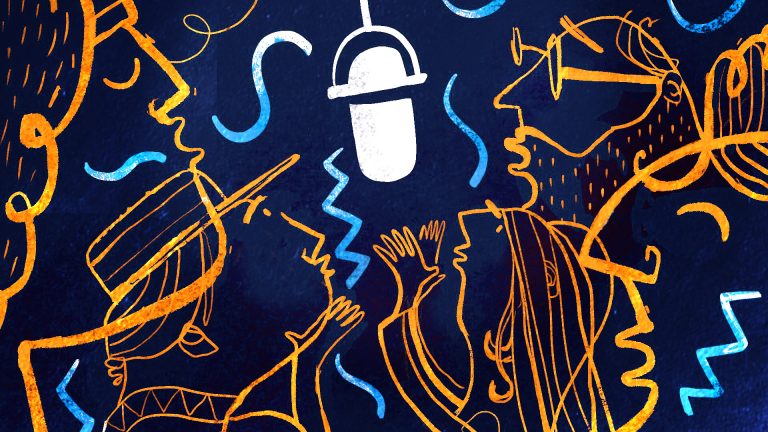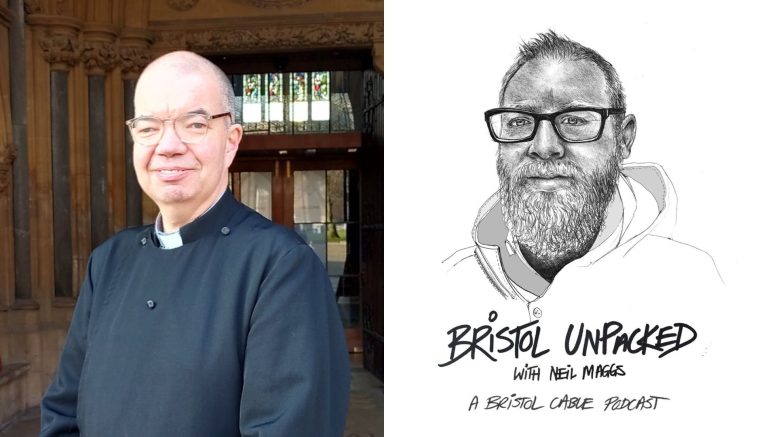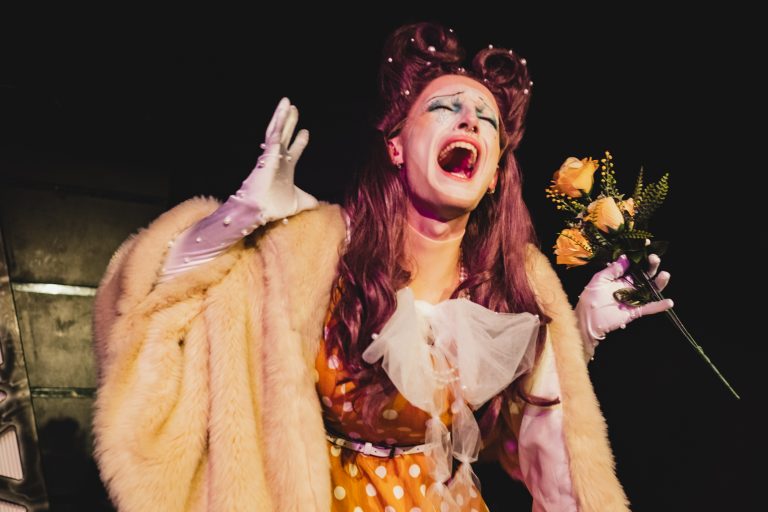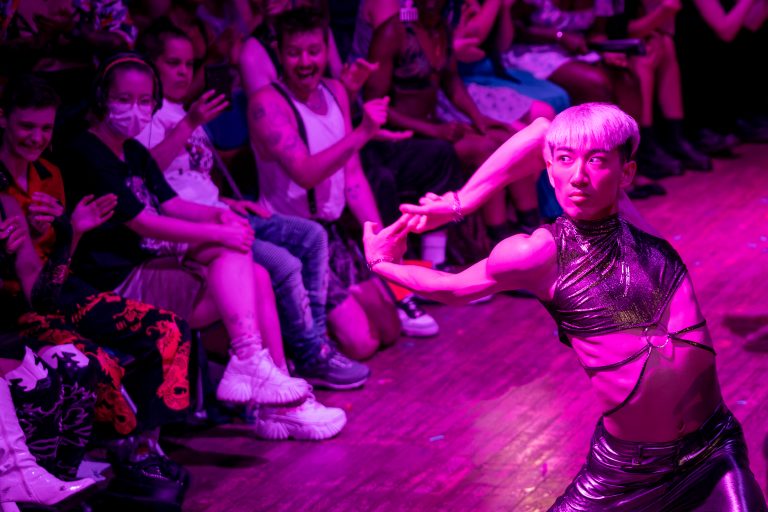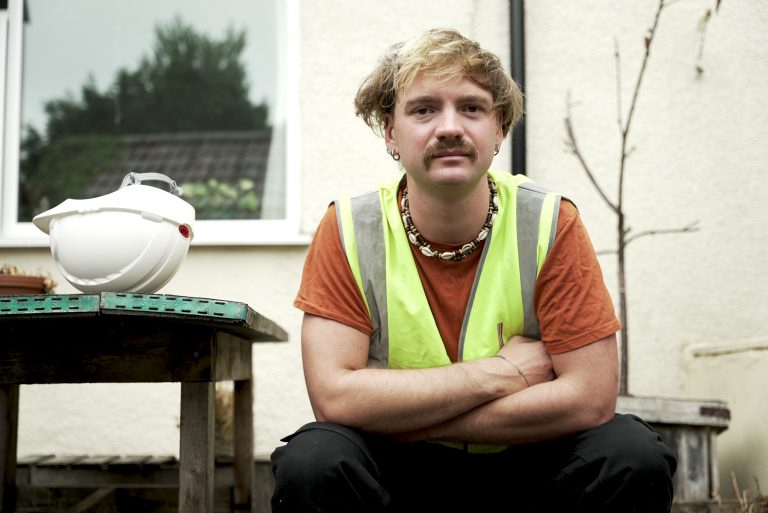‘Most families find it shameful’ – Finding pride in a community where being gay is taboo
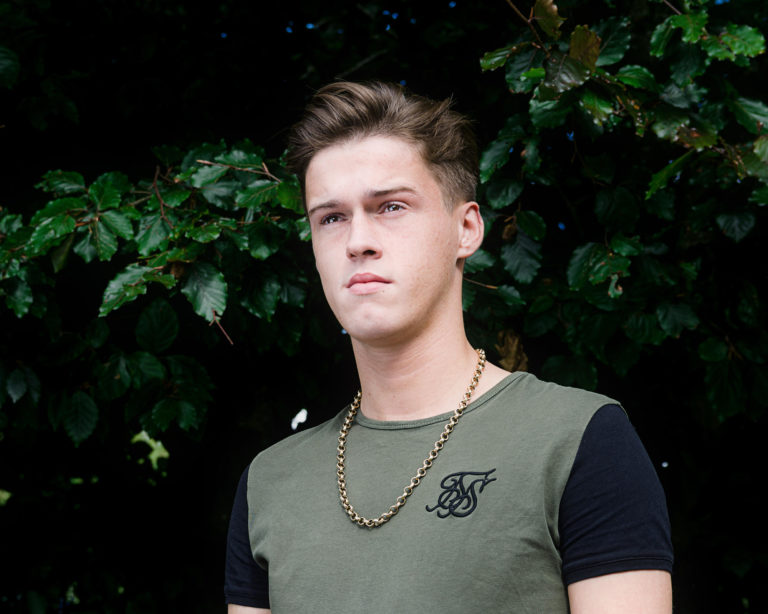
Portrait of James Credit: David Griffiths
Photos of Traveller Pride 2019 (Credit: Joseph Mitchell, reproduced with kind permission from Traveller Pride and Travellers Times)
James was 18 when he told his mum he was gay. He did it by text, then put his phone on flight mode and didn’t come home for two days.
Coming out can be a daunting experience for anyone, but James had more reason than most to be worried about his family’s reaction. He’s an Irish Traveller, and being gay is still taboo in many Gypsy, Roma and Traveller (GRT) communities.
“My mother was scared for me”
James Lawrence
“I expected total rejection, to be honest with you. I thought: ‘I am going to be shunned from the family.’”
James, now 22 and living in north Bristol, had known he was gay since primary school but homosexuality isn’t discussed in his community.
“It takes a lot of confidence for somebody to come out as gay,” he tells me. It’s not unheard of for LGBT+ people in GRT communities to keep their sexuality a secret their whole lives, some coming out to their families only to be pressured into marriage, or disowned. Many experience bullying and abuse. There are Traveller shaming groups on Facebook, James says, dedicated to shaming young people in the community.
But Irish Travellers traditionally marry in their teens and James wasn’t seeing anyone yet. “I thought: I’m going to have to come up with some options here because I’m coming of age now, and it’s getting suspicious that I’m not with a girl, I’m not settling down.’” So, despite his nerves, he sent the text, and waited to see what would happen.
When he turned his phone back on, he had a dozen missed calls and an anxious mum wondering where he was.
“She doesn’t care about my sexuality, she was more worried about me staying out all night.” Her reaction gave him the confidence to come out to the rest of his family over the next few weeks, though she tried to persuade him to wait.
“My mother was scared for me, she didn’t want me to come out immediately, in case I got bullied. But after bottling it up for all those years… I wanted to let all my family know.”
“You get used to hiding your ethnicity”
Despite Irish Travellers gaining ethnic minority status in Ireland in 2017, and the UK in 2000, the discrimination continues. It’s only 50 years since ‘No Travellers Allowed’ signs were outlawed; pubs and shops still regularly refuse to serve people from GRT communities. “You can’t do normal things; it’s like you’re segregated from the community,” James tells me when we first meet.
“I have known boys forcing themselves to marry women, or take a darker route”
He’s wary of criticising his community and chooses words carefully when saying anything that might be taken badly. They get enough flak from elsewhere, fuelled by a media that demonises them for the sake of page views: “They portray us as thieves and fighters,” he says – and he doesn’t want to aid the stereotyping. But he’s also determined that the fear shared by many LGBT+ people in GRT communities must no longer be hidden.
“It is a very unspoken subject… Most families find it shameful being LGBT, they try to keep it very secret. I have known boys forcing themselves to marry women, or take a darker route.”
GRT communities have the worst health outcomes of anyone. Life expectancy as a Traveller is a decade less than the national average and the lowest of any ethnic group. James points out that as the average age a Traveller man lives to is 61.7, he’s practically middle-aged, and that maybe there isn’t much point in the pension he’s just signed up to, given that he’s not expected to live to retirement age.
Mental health is at crisis point among GRT communities. Poverty, unstable housing, low expectations in education, low employment and health outcomes, as well as daily discrimination, all contribute. The Times reported this month on high rates of suicide and self-harm in the community. Eleven percent of Traveller deaths are from suicide, six times the national rate, and seven times that for men in the settled community.
And for Travellers who are keeping their sexuality a secret – or who come out to their families only to be disowned, made homeless, beaten up or pressured into marriage – things can look even more desperate.
The Traveller Movement, a GRT advocacy group, launched a campaign in 2017 to raise awareness. “It’s good to let people know we are here, we do exist. And we do face a lot of stigma,” says James. “These are things that people need to know.”
Having to keep his sexuality a secret took an inevitable toll on James’s mental health. He didn’t see being openly gay as an option, so for a long time he couldn’t imagine a future where he could be himself. He spent a lot of his teens angry and feeling trapped. “I was thinking: ‘what do I do with my life? Do I marry and be unhappy for the rest of my life?’ I was very depressed.”
James says that although social media is full of RIP videos for young Travellers, it is “shaming them while they’re alive”.
“It’s important that support comes from within the community because youngsters’ mental health is horrible, you’re hearing about suicide nearly every couple of days. It’s shocking.”
Attending Bristol mental health charity Off The Record’s LGBT+ group, Freedom, helped him, although his reaction when his friend suggested it was defensive. “I instantly said I wasn’t gay,” he remembers. His friend said he could go as an ally, which James says “was a perfect excuse to go”. The one-to-one confidential sessions allowed him to express himself in a safe space and not feel judged.
Discrimination comes from LGBT spaces too. “You get used to hiding your ethnicity,” James tells me. “You wouldn’t want to date outside the community because of it.” While he’s quick to point out he doesn’t keep his ethnicity a secret as he’s proud of who he is, it’s not something he’ll say straight away. And when he does tell people?
“‘Oh I wouldn’t have thought you were a Traveller, you’re too well mannered’… ’You can’t be a Traveller, you live in a house’… And the worst, yet most popular comment is: ‘Oh yeah, but you are a nice Traveller – not the P***y kind’. That comment I have heard several times and it’s the most hurtful.”
Pride
But there are signs things are changing. James went to Pride in London this year; for the first time Travellers had an official place in the parade. “Going to Pride – meeting people from my own community, having official representation – was just phenomenal,” he says. Organiser Tyler Hatwell, a Showman and psychotherapist, tells me that around 20 people went from a mix of ethnic and cultural GRT communities: “We had Irish Travellers, Romany Gypsies, Roma, Showmen, New Travellers, and Boaters all together as Travellers,” he says. “That’s three ethnic groups that had never been officially part of the parade before!”
As well as an opportunity for them to celebrate and “say you can be both a Traveller and not straight,” the parade allowed them to meet and start building a community. Tyler is hopeful that the group will be community-led – too much is run for GRT communities by non-GRT organisations.
“It’s easy to feel like you don’t fit in with the traditional Traveller world because of your sexuality or gender, and that you don’t fit in with LGBT spaces because of discrimination”
Tyler Hatwell, Traveller Pride
Tyler agrees that being an LGBT+ Traveller can be an isolating experience. “It’s easy to feel like you don’t fit in with the traditional Traveller world because of your sexuality or gender, and that you don’t fit in with LGBT spaces because of discrimination.”
After the march, Tyler heard from a Traveller who said he wasn’t ‘out’ and there was no way he could have gone. But ”the fact that we had gone and represented had really helped him feel more comfortable with himself,” says Tyler. “That’s what it’s for.”
At our last interview, I ask James what advice he’d give to other Travellers who are considering coming out, and his advice is sobering. He says it’s important to get confidential one-to-one support, and then to be careful when and how you tell your family.
“Put yourself in a safe situation, make sure you have friends you can stay with, a safe space to go afterwards just in case. It’s good to be open with your family, but you need to make sure it’s the right time to tell them, and you need to make sure that you’re in a safe situation yourself.”
Correction: this article originally said that GRT news site The Travellers Times launched a campaign in 2017, but it was actually GRT adocacy group, The Traveller Movement.

Travellers were officially represented at Pride for the first time in 2019
Photo: Joseph Mitchell / Traveller LGBT Pride









Independent. Investigative. Indispensable.
Investigative journalism strengthens democracy – it’s a necessity, not a luxury.
The Cable is Bristol’s independent, investigative newsroom. Owned and steered by more than 2,500 members, we produce award-winning journalism that digs deep into what’s happening in Bristol.
We are on a mission to become sustainable, and to do that we need more members. Will you help us get there?
Join the Cable today


